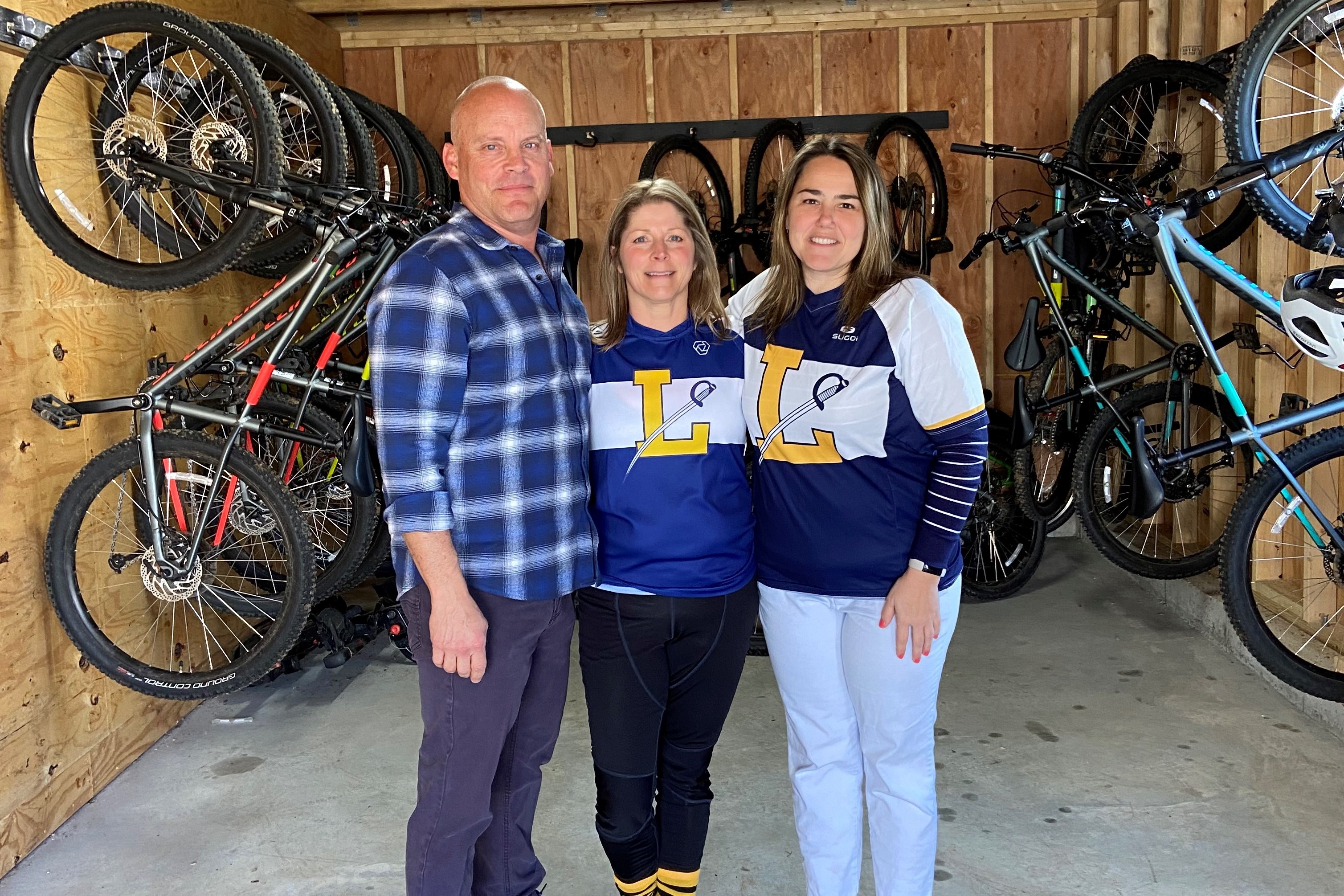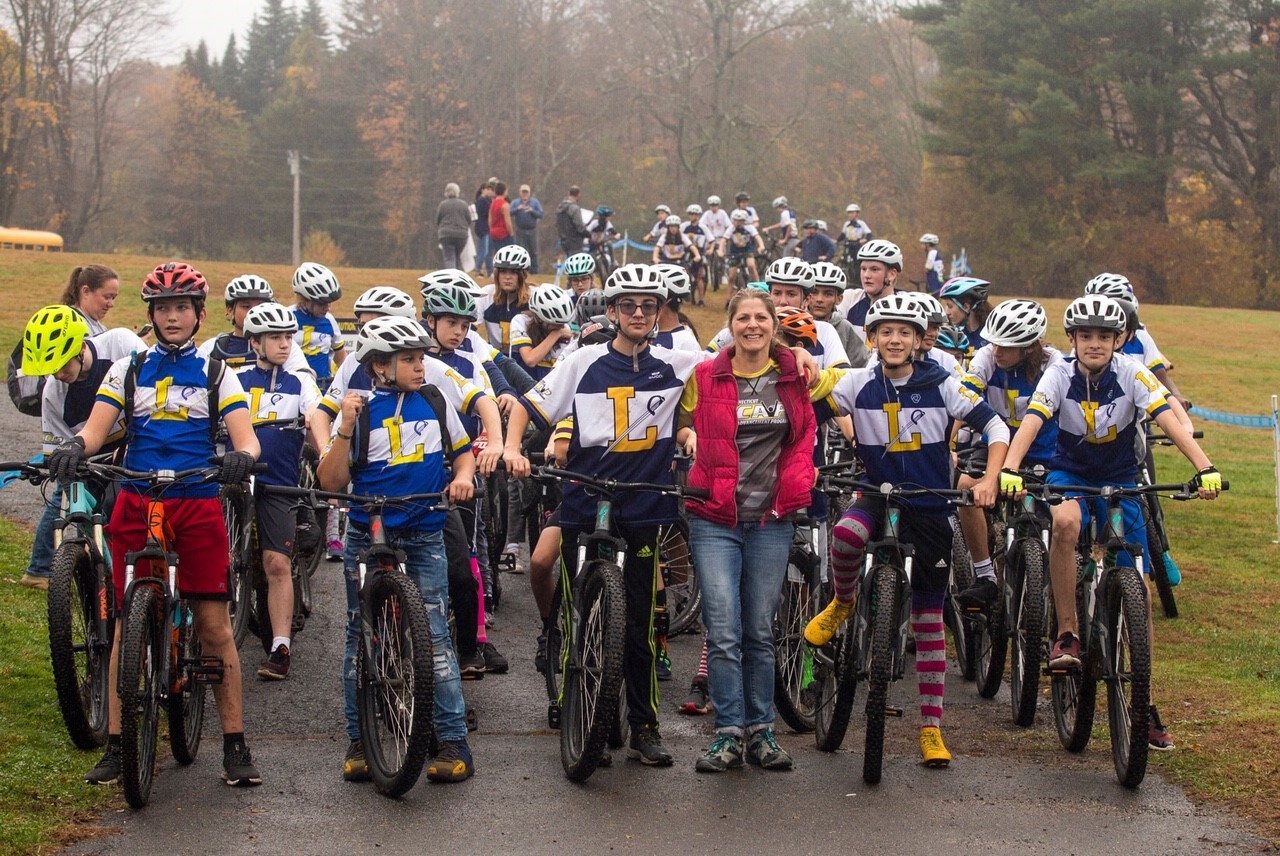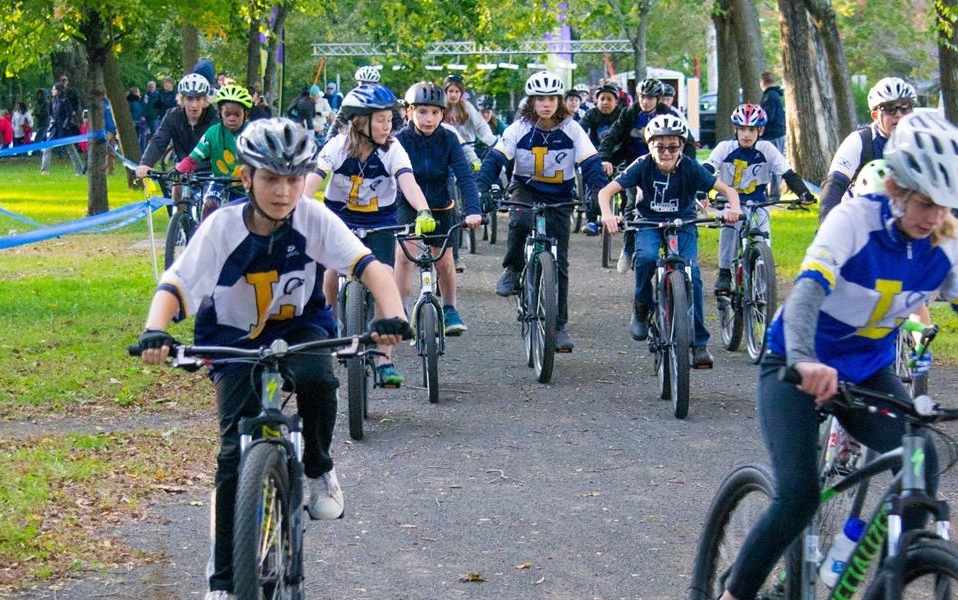Autism *Acceptance* Month

Last year The Autism Society of America changed April’s designation of Autism Awareness Month to Autism Acceptance Month. “Awareness is knowing that somebody has autism. Acceptance is when you include (a person with autism) in your activities,” said the organization’s president and CEO Christopher Banks. That’s precisely the premise behind the fellowship of three Connecticut middle school teachers. We asked Kristen Gallagher, Dwaine Vaudrey and Liz Dubreuil (Ledyard Middle School – Gales Ferry, CT) to share more about the motivation behind their fellowship this summer, which COVID postponed since initially receiving their grant in 2020.
Q: For middle schoolers, acceptance can be as elusive as the next TikTok dance. What made you think that biking could unite this age group and, specifically, students who have Autism Spectrum Disorders and those who do not?
A: For many of our students, not just those with spectrum disorders, typical team sports don’t work for them. That in itself is unifying. Everyone in the bike club belongs to a team with the goal of personal growth. Kids see more in common than differences.
Additionally, the practice groupings are based on skill sets which allow for everyone to have a starting point based on their comfort level. Challenges students with ASD face are well camouflaged during mountain biking because the overall skill sets of participants are so diverse that no one particular individual stands out from the rest. Overall, the participants are all having such a good time challenging themselves and enjoying the mountain biking experience that a student’s impairments go unnoticed by their peers.
Q: Five years ago, you collaborated with a non-profit cycling organization to create the school’s cycling club and today it’s the largest in the state with more than 60 members, the majority of whom are special education and/or “504 students” who have a “physical or mental impairment that substantially limits one or more major life activity.” How has this outlet impacted these students?
A: Anxiety, inattention, feelings of failure, and academic disabilities are obstacles many students with autism associate with school. These obstacles prevent them from crossing peer/friend barriers and taking risks. During cycling, those obstacles are removed and replaced with opportunities for new friendships and an appreciation of their uniqueness. Students who have not felt success in other organized sports come to cycling and are invested in their team and love to ride.
Socially, interactions between students in our social/emotional and autism classrooms and their typical peers happen organically on the bike trails. One example is when an academically gifted student struggled with a log on the trail; the student with autism was the one teaching and demonstrating; mentoring roles were reversed. Another example are twin girls who on the team who have difficultly speaking in specific social settings. After a race one of the girls pulled me aside and said she wore a shirt under her bike jersey that read “I love my team!” Her sister wore a special shirt under her jersey that read “Best Day Ever!” They take risks on the trails and it carries over to the classroom.
Q: What was the catalyst behind your Fund for Teachers proposal?
A: We are fortunate to have so many bikes for students to ride, but the maintenance of bikes has presented a significant challenge for us. There are often times when bikes need repairs, and we have to transport bikes to our local bike shop. This leaves a rider without a bike. The shop mechanic comes to our school when we host races, but there is a greater need for repairs and maintenance on a near-daily basis. There have also been times when we needed to change flat tires or put a chain back on a freewheel to get a rider back on the bike. These basic jobs piqued the interest of several students and this sparked the idea for students to take over basic maintenance. Our special education students who might not feel comfortable on the trails could be part of the team by keeping the bikes in working order.
Q: Describe what you and two colleagues will be pursuing this summer with your $10,000 grant.
A: We want to learn and then teach the students how to repair bikes. This will expand the cycling club to students who may not ride but like to fix things and work with their hands. The Principal of our school would like to expand our cycling repair into the school day for students on the autism spectrum and in our social-emotional classrooms. A larger plan is for a winter maintenance club for all students, a special needs opportunity for students to help us with bike and helmet cleaning and inventory, and a prevocational option for students during the school day. The FFT grant is allowing our team to go to the Barnett Bike Institute in Colorado Springs to attend a week-long bike assembly and maintenance class. There we’ll become certified for basic assembly and maintenance of bikes.
Q: Then what?
A: Once we learn the basics, we will be able to teach our students how to initially tune-up and adjust our fleet of bikes. This addresses our immediate need for bike repair and maintenance of our fleet. On non-riding days, the “mechanic team” will teach a small group of interested students predetermined maintenance skills. The greatest impact on students would be authentic learning for an authentic purpose. Students who in the past may not have connected with their peers would learn a useful and valuable skill to help their peers.
Another part of the plan is to add two or three bike stands into special education and general education classrooms by the spring of the next school year. Students are naturally curious and will ask questions about the stands and bikes; student-driven learning can occur. Some students on the autism spectrum or who have emotionally impactful obstacles to classroom participation can participate in cycling maintenance for the school. Our Principal envisions cycling maintenance creating prevocational opportunities and ways to make valuable contributions and connections beyond the classroom.
Q: How do you see this fellowship ultimately impacting your community?
A: The learning and teaching will not end with middle school. Part of our long-term plan is to have former middle school “wrenches” in high school come back to support our new middle school “wrenches.” This cycle will keep our program sustainable by addressing our bike maintenance needs. We will tap into our high school mentors as a resource and role models. Inclusion of high school students will create a cycle of students who become mentors and support our sustainability.
The ultimate community outreach and connection will be with a bike fix-it-shop. Students will repair donated bikes and give them back to children in the community without a safe bike to ride. Receiving this grant is the starting point for actualizing the possibilities.
[minti_divider style=”3″ icon=”” margin=”20px 0px 20px 0px”]
To learn more about the Ledyard Middle School Bike Club and how a Fund for Teachers grant will strengthen its’ success, listen to this episode of Fund for Teachers: The Podcast.
 Back to Blogs
Back to Blogs

